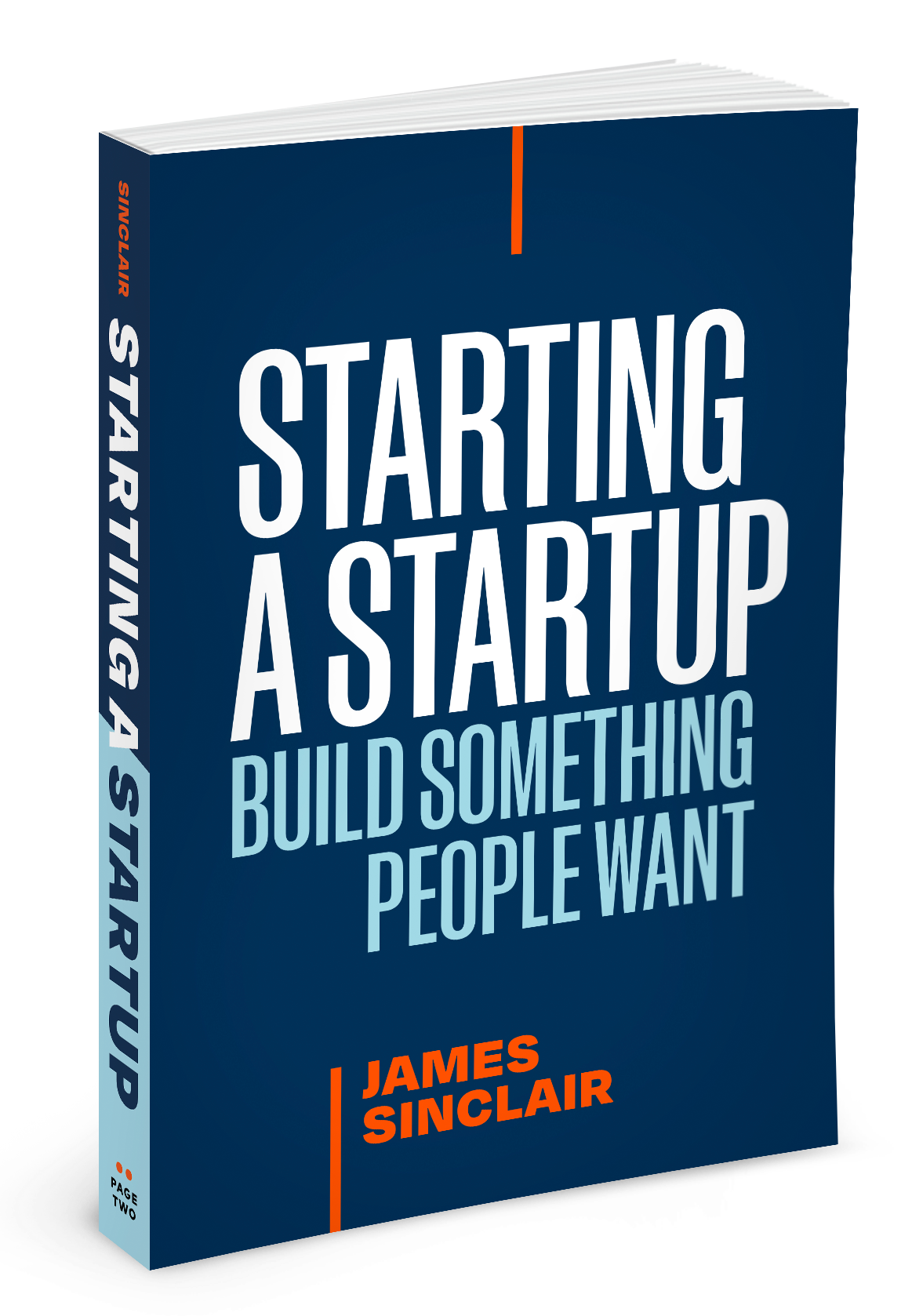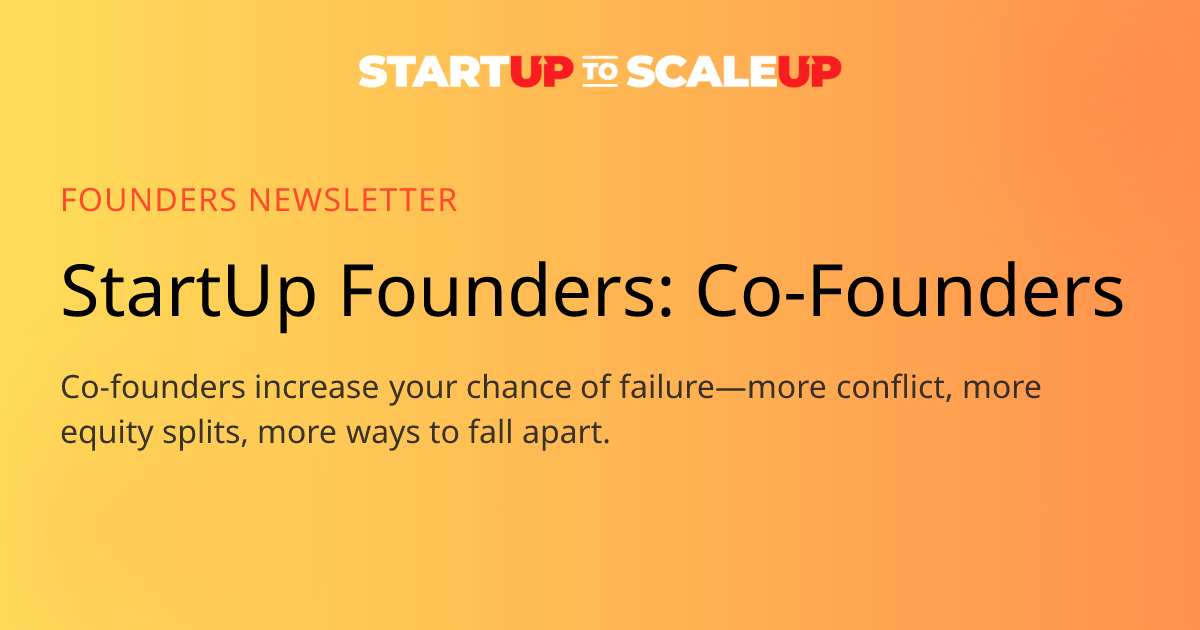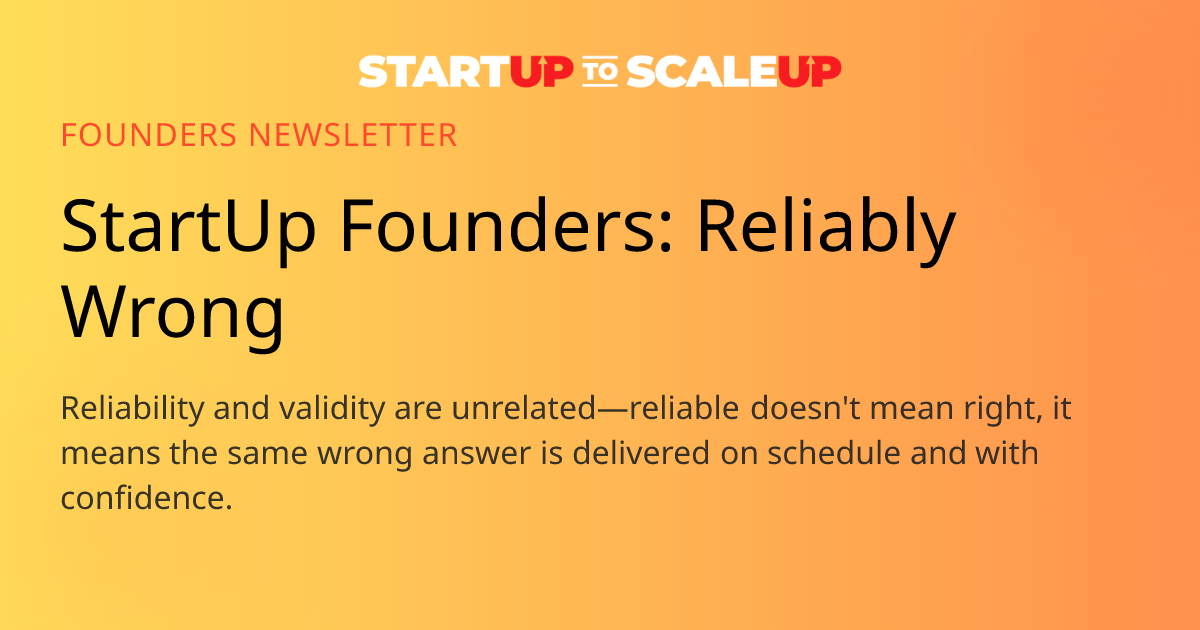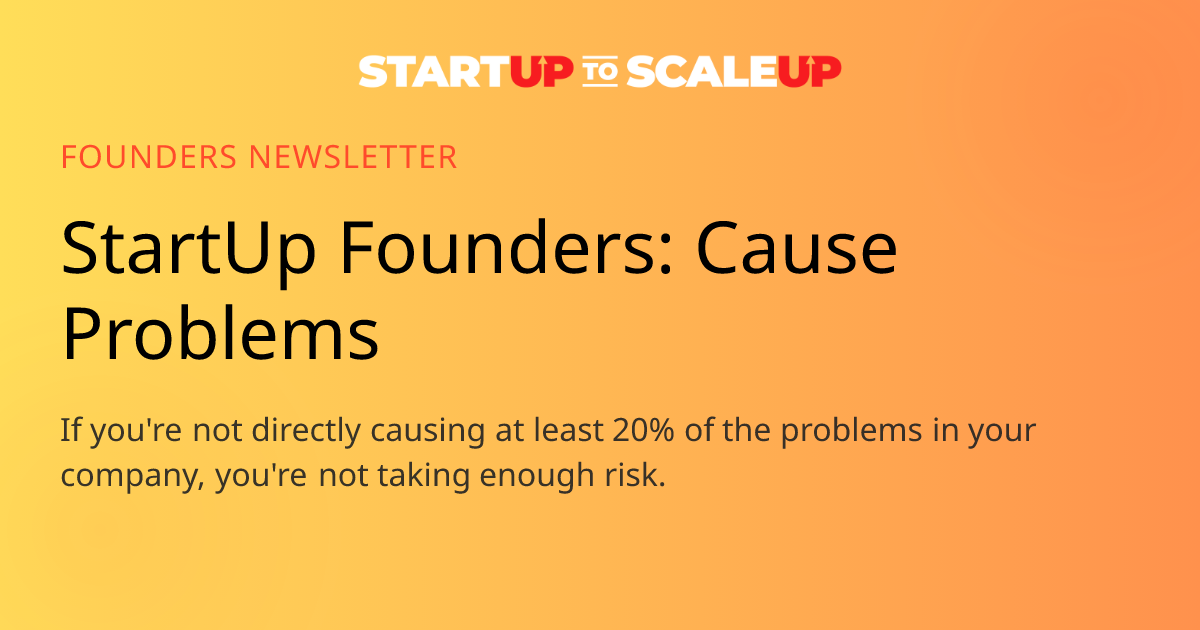Startup Early Days: Surviving the Brutality and Finding Your First Customer
Published August 10, 2025
Core Takeaway
TLDR
- The early days are meant to be brutal, humiliating, and uncertain — this is the real filter for founders.
- Mythologizing the beginning only hurts current founders; the reality is messy and chaotic.
- Your moat is your persistence when everything is broken, not early perfection.
- Focus on getting one real customer before you worry about disrupting industries.
Newsletter
Hey Reader,
The early days f’n suck. The super-early stage actually lasts way past when you thought you’d be through it. It’s deeply embarrassing. And any sane outsider would believe you shouldn’t even be in business.
Your product is held together with duct tape and prayer. Your team is three people working for equity in a company worth 0. Your runway is some black magic of squeezing 6 months out of 2 months of cash. Your biggest customer is your friend, and she doesn't actually use it.
The beginning is so humiliating. The tech is kinda shit, the team is kinda shit, the math of how the hell you make money is kinda shit, and you are burning money throwing anything at the wall, iterating based on imaginary user feedback.
A groundhog day of waking up every morning wondering if you're delusional or determined, and not being able to tell the difference, probably both!
This is just a note, to remind you, what you already know, but you might need to hear.
The successful founders, the VCs, the accelerators, the podcasts, the founders who win and the founders who quit. Everyone pretends the beginning was just challenging or a learning experience or rapid iteration to find PMF and all that does is make what you are going through feel either worse or like you are doing it wrong.
It’s all bullshit. The early days are mortifying in real time as it’s happening AND in retrospect. Once you’ve made it past the valley of death, admitting how close you came to quitting feels like weakness until you have won, and then it’s a fun anecdote.
So we sanitize the story. We say “early traction” instead of “convincing our friends to try our shitty product.” We say “lean operations” instead of “couldn’t afford anything.” We say “finding product-market fit” instead of “throwing shit at the wall for eighteen months.” all just labels.
The mythology sells better than the reality but YOU know what the early days actually look like because you are living them. This is what they look like.
Your launch gets 12 signups. Your demo crashes during the one prospect call. Your dev is unavailable and the platform is down. Your bugs are a stream of 700 barely intelligible comments in Slack that will never be updated in trello.
Your biggest competitor just raised $50M while you’re not adding avocado to your salad for $4, out of guilt you might need that cash.
So as a reminder. Don’t worry about disrupting anything. Just make something that one person, anyone, actually wants to pay for. Because the easiest way to get to two customers, is to get one customer. Do the unreasonable even when reasonable says to quit.
Because right now, you are the moat. Your willingness to keep going when logic says stop. That’s the thing. You’re supposed to feel like you’re drowning. Because you are.
Not because you are certain it will work, because you are too stubborn to stop. Or because you refuse to give the world the satisfaction of being right.
Every founder that matters started in this exact place. Broke, broken, and borderline delusional.
That narcissism, that psychopathic detachment from everyone telling you to stop, that Machiavellian belief you can make this work - features, not bugs... (last week, Dark Triad)
Everyone has gone months without paying themselves, built features nobody wanted, pitched ideas that hurt more than helped and questioned everything about what they were doing while doing it anyway.
We have to talk about this stage. Often, and with empathy, because the silence is killing founders who think they’re doing it all wrong. You are, but that’s exactly the point.
It's supposed to be brutal. The brutality is what filters out the people who want to be founders from the people who need to be founders. Which one are you?
So. Do you believe in this thing enough to keep going when everything is broken? Right now. When it sucks. When you’re embarrassed to tell people your MRR. When you’re not sure if you’re building the future or just burning time.
And if you can’t, that’s okay too. The early days f'ng suck. But they’re supposed to.
Welcome to the arena. Smile. You asked for this (pressure is a privilege). Keep your head down, stack the smallest wins, there’s a day when the wind changes direction, and you’ll look up and realize you’ve built something real…
If I can be of service, feel free to grab time.
LFG.
-- James
Frequently Asked Questions
More Newsletters
Continue Your Founder Journey
Explore all the resources available to help you build and scale your startup
Startup Frameworks Library
Subscribe to the Newsletter
Join 140,000+ founders getting exclusive strategies, frameworks, and founder stories every Sunday.
Get instant access to the 50-Step Founder Playbook downloaded over 1M times
Presented by




